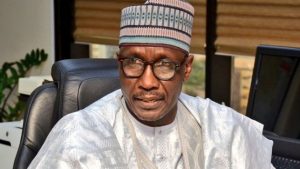As world governments discuss a transition from oil to low-carbon energy alternatives at the U.N. climate conference in Dubai this week, how the oil industry should transition its operations must receive greater attention. An example of how not to transition is the current trend in oil divestment and decommissioning in Nigeria.

In the past, oil majors including Shell, ExxonMobil, Chevron, Total, ENI/Agip, along with their federally owned joint venture partner Nigeria National Petroleum Corporation, were the only oil and gas producers across Nigeria’s Niger Delta. But with the 2010 passage of Nigeria’s Local Content Bill, and growing social strife in the region, multinationals began divesting (selling) marginal, high-risk onshore and nearshore assets to smaller domestic companies.
It is likely that, by 2030, all onshore and nearshore assets in the Niger Delta will be owned and operated by domestic companies.
And oil divestment in Nigeria is being conducted without effective government oversight. Ever since its independence in 1960, Nigeria’s government has been heavily dependent on oil revenue, non-transparent, plagued by corruption, and strategically dysfunctional, thus allowing the oil industry essentially free rein in its profit-taking, capture of regulators, and recklessness.
As international oil companies publicly signal their intention to reduce high-carbon holdings to meet climate goals, these companies are mainly just selling high-risk, marginal assets in socially distressed areas (such as the Niger Delta) to domestic oil companies with far lower environmental standards, to continue production, indeed “significantly increase production,” resulting in even greater carbon emissions and environmental damage. What is presented as an environmental positive for one multinational oil company is actually a net environmental negative globally.
For decades, all oil majors have committed environmental atrocities in the Niger Delta, while reaping billions in profits. Communities suspect that by divesting now, these companies are attempting to escape liability for their decades of negligence.
Most of the new operators do not conduct due diligence on the acquired assets, and lack the financial and technical capacity to safely manage these complex operations. After some sales, buyers often disagree who actually owns and operates the assets, and some have filed suit against the companies that sold the assets.
Given communities’ concerns that these new domestic companies lack operational experience and adequate safety standards, in 2015 the Nembe community (Bayelsa State) placed a caveat emptor (“buyer beware”) decree on a proposed sale from Shell to Aiteo. This was prophetic, as in 2019 and 2021 there were two major blowouts from a wellhead transferred in the sale (https://homef.org/wp-content/uploads/2021/12/well-head-woes-single-pages.pdf), and several other spills since.
Local communities continue to raise serious concerns about derelict oil facilities (wellheads, manifolds, flow stations, and pipelines) in need of proper decommissioning, asserting that many of these old facilities are like landmines strewn across the Niger Delta, ready to explode at any time, such as the Oct. 2023 explosion of an abandoned wellhead in Bayelsa State (Explosion at Abandoned Oil Well in Okpoama Kingdom, Bayelsa State (bnn.network). These improperly abandoned wells present risk of groundwater contamination, ecosystem impacts, and serious human health issues.
The oil industry’s carbon footprint in the Niger Delta is one of the darkest spots on the climate conscience of the world. As with other petrostates, Nigeria is resisting the urgent need to transition from oil. The government is currently incentivising oil and gas production by lowering taxes and royalties and establishing a Frontier Exploration Fund to stimulate new oil and gas production in non-traditional areas of the country.
To reform this dangerous trend, a broad array of civil society organisations in the Niger Delta propose adoption of a new code of conduct for responsible divestment of oil and gas assets, the National Principles for Responsible Petroleum Industry Divestment; an accelerated plan to ensure the safe decommissioning of oil facilities, and involving host communities and state governments in all divestment and decommissioning decisions; and negotiation of a global U.N. Multilateral Environmental Agreement on fossil fuel divestment and decommissioning.
Transitions can be difficult. The current global transition to a sustainable, low-carbon energy economy is both urgently necessary and inevitable. Many who profit from the current unsustainable fossil fuel economy continue to resist the transition, resulting in perverse, self-destructive policy choices by industry and government. It is obvious that oil majors and their host governments currently have no intention of reducing production to support global climate security. Their greed may be humanity’s ultimate undoing.
In this context, it is imperative that Nigeria’s new president, Bola Tinubu, makes different choices, and reforms the nation’s approach to oil industry divestment, decommissioning and abandonment into a positive model for a Just Transition. The 30 million people of the Niger Delta, who have suffered 65 years of reckless oil extraction, deserve no less.
By Rick Steiner and Iniruo Wills
Rick Steiner is a professor and conservation scientist in Anchorage Alaska, Director of Oasis Earth (www.oasis-earth.com), and has worked globally (including the Niger Delta) on oil and environment issues for decades. In July, he conducted a fact-finding mission to the Niger Delta to explore the issue of oil industry divestment, decommissioning, and abandonment, and his report: “Just Transition: Reforming Oil Industry Divestment, Decommissioning, and Abandonment in the Niger Delta Nigeria,” released Dec. 6: (https://www.oasis-earth.com/publications).
Iniruo Wills is an attorney in Nigeria’s oil capital, Port Harcourt, Rivers State (Niger Delta); a former Environment Commissioner for Bayelsa State; involved in pursuing remedies for several large-scale environmental disasters; co-President of the Ijaw Professionals Association, and a governance and development consultant
